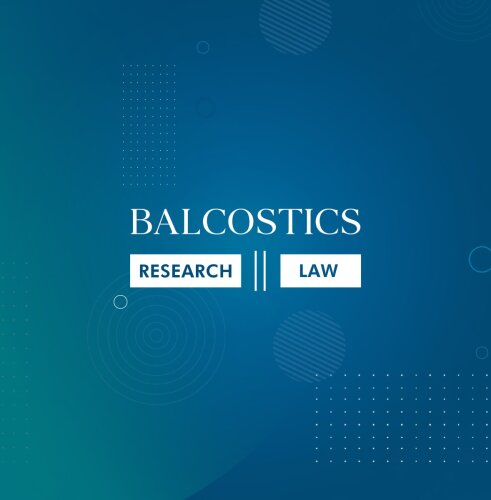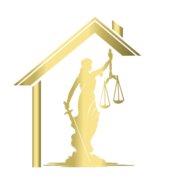Best Sexual Abuse Lawyers in Jamaica
Share your needs with us, get contacted by law firms.
Free. Takes 2 min.
Or refine your search by selecting a city:
List of the best lawyers in Jamaica
About Sexual Abuse Law in Jamaica
Sexual abuse in Jamaica is a critical issue that affects individuals, families, and the broader society. The legal framework in Jamaica addresses sexual abuse under several statutes, aiming to protect the rights and dignity of victims. The Sexual Offences Act is the primary legislation that outlines offenses, including rape, sexual assault, and indecent exposure. The Jamaican legal system ensures that perpetrators are brought to justice while providing support mechanisms for survivors. In recent years, there has been a significant push towards improving the support offered to victims and strengthening the legal penalties for offenders to deter such crimes.
Why You May Need a Lawyer
There are numerous situations where someone might require legal assistance in matters of sexual abuse. Here are some common scenarios:
- Victims who want to understand their rights and pursue legal action against their abusers.
- Individuals accused of sexual offenses who need representation to ensure their legal rights are protected during investigations and potential trials.
- Families seeking protective measures for minors who are at risk or have been abused.
- Employers or educators who require legal guidance to handle cases of sexual harassment within organizations or schools.
In these and other situations, a lawyer can provide the necessary expertise and advocacy to navigate the complicated legal landscape of sexual abuse cases.
Local Laws Overview
The legal framework in Jamaica concerning sexual abuse is extensive and primarily governed by the Sexual Offences Act of 2009. Key aspects include:
- The definition of offenses such as rape, sexual assault, and incest, along with their respective penalties.
- Provisions for the protection of minors and vulnerable persons, including specific penalties for child sexual abuse.
- Guidelines for the reporting and investigation of sexual offenses to ensure a victim-centered approach that respects the privacy and dignity of survivors.
- The establishment of sex offender registers to monitor and manage offenders within the community post-conviction.
Frequently Asked Questions
What should I do if I or someone I know has been a victim of sexual abuse?
If you or someone you know has been a victim of sexual abuse, it is important to immediately report the incident to the police. Seeking medical attention and contacting a victim support service is also advisable for emotional and psychological support.
How long do I have to report a sexual abuse case?
There is no statute of limitations on reporting sexual abuse cases in Jamaica. Victims are encouraged to report offenses as soon as possible to preserve evidence and strengthen the case.
What is the punishment for rape in Jamaica?
Under the Sexual Offences Act, the punishment for rape ranges from a minimum of 15 years to life imprisonment, depending on the circumstances and severity of the offense.
Can a minor file a sexual abuse report?
Yes, a minor can file a sexual abuse report. However, it is often done through a guardian, social worker, or legal representative to ensure the child’s protection and best interests are considered throughout the process.
Are there any protective measures for victims during a trial?
Yes, the court can implement several protective measures, including in-camera hearings, witness protection programs, and restraining orders against the accused to safeguard victims during legal proceedings.
Can someone be prosecuted for making false allegations of sexual abuse?
Yes, individuals making false allegations of sexual abuse can face legal consequences, including charges of perjury or making false reports, which are serious offenses under Jamaican law.
What legal options are available for someone falsely accused of sexual abuse?
An individual falsely accused of sexual abuse should seek legal representation immediately to challenge the allegations using evidence, witness statements, and, if applicable, alibi defenses.
Is there a way to keep my identity confidential during a court case?
Yes, the Jamaican legal system offers options to protect the identity of victims and witnesses in sexual abuse cases to respect their privacy and maintain confidentiality.
How can I find a lawyer specialized in sexual abuse cases?
Victims or accused persons can find specialized lawyers through organizations offering legal aid, contacting the Jamaican Bar Association, or reaching out to specialized NGOs.
What if the perpetrator is a family member?
If the perpetrator is a family member, victims are encouraged to speak with law enforcement and a legal representative to explore protective legal actions, such as restraining orders and safeguarding measures.
Additional Resources
Victims and individuals seeking assistance can turn to several resources in Jamaica for support and guidance:
- The Victim Support Unit (VSU) provides counseling, court support, and assistance with the legal process.
- The Bureau of Gender Affairs offers resources and advocacy for gender-based violence, including sexual abuse.
- NGOs like Woman Inc. and Eve for Life offer support, advocacy, and shelter for victims of sexual abuse and domestic violence.
- The Jamaican Constabulary Force (JCF) has specialized units for handling reports of sexual offenses and protecting vulnerable persons.
Next Steps
If you require legal assistance concerning sexual abuse in Jamaica, consider the following steps:
1. **Contact Law Enforcement:** Make a formal report to the police as soon as possible.
2. **Seek Legal Counsel:** Look for a lawyer with expertise in sexual abuse cases for tailored legal advice and representation.
3. **Obtain Support Services:** Reach out to victim support organizations and counseling services for emotional and practical assistance.
4. **Document Everything:** Keep records of all communications, incidents, and evidence related to the abuse for use in any potential legal proceedings.
Following these steps can help ensure your rights are protected, and you receive the necessary support and justice in your case.
Lawzana helps you find the best lawyers and law firms in Jamaica through a curated and pre-screened list of qualified legal professionals. Our platform offers rankings and detailed profiles of attorneys and law firms, allowing you to compare based on practice areas, including Sexual Abuse, experience, and client feedback.
Each profile includes a description of the firm's areas of practice, client reviews, team members and partners, year of establishment, spoken languages, office locations, contact information, social media presence, and any published articles or resources. Most firms on our platform speak English and are experienced in both local and international legal matters.
Get a quote from top-rated law firms in Jamaica — quickly, securely, and without unnecessary hassle.
Disclaimer:
The information provided on this page is for general informational purposes only and does not constitute legal advice. While we strive to ensure the accuracy and relevance of the content, legal information may change over time, and interpretations of the law can vary. You should always consult with a qualified legal professional for advice specific to your situation.
We disclaim all liability for actions taken or not taken based on the content of this page. If you believe any information is incorrect or outdated, please contact us, and we will review and update it where appropriate.
Browse sexual abuse law firms by city in Jamaica
Refine your search by selecting a city.

















